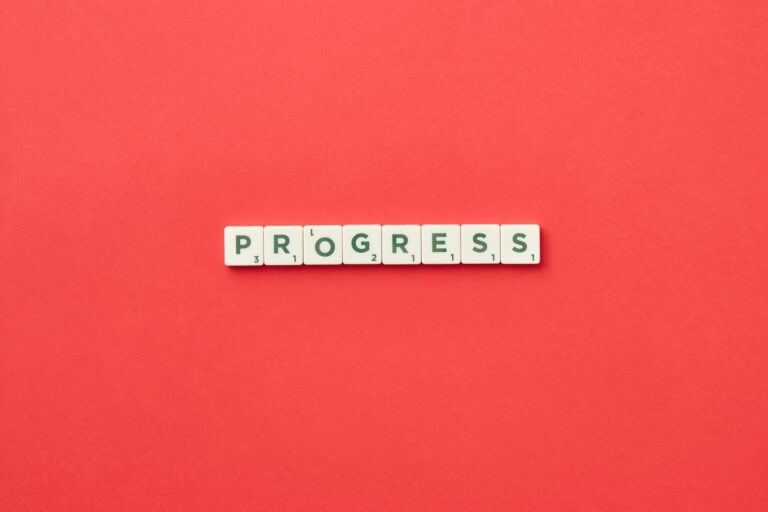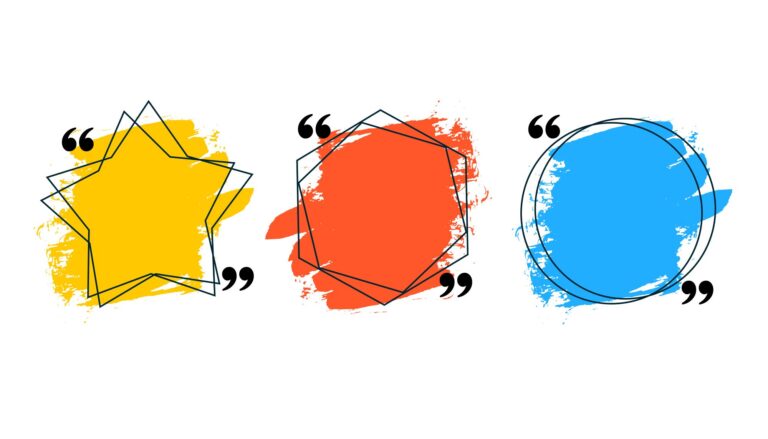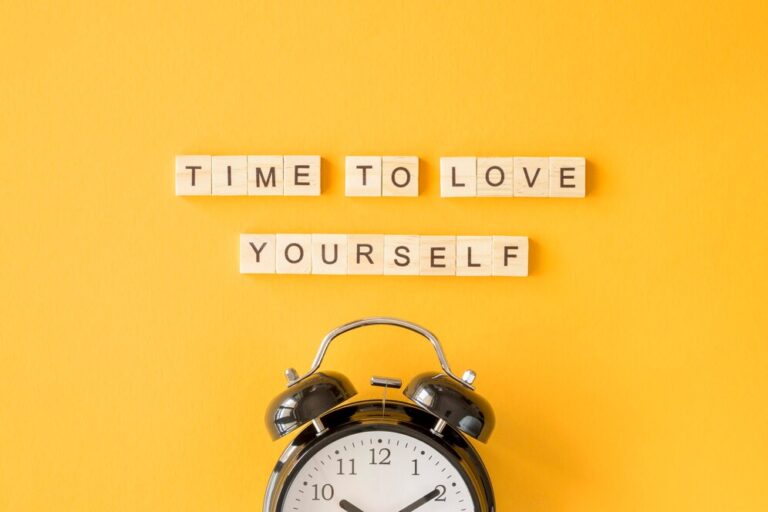The real reason you’re hard on yourself (and how to stop)
You mess up a presentation at work and spend the next three days replaying every stumbled word, every awkward pause, every moment where you could have been better. Meanwhile, your colleague makes the same mistake and you think, “No big deal, happens to everyone.”
You look in the mirror and immediately catalog everything that’s wrong – your skin, your weight, that weird thing your hair is doing. But when you look at your best friend, you see someone beautiful, worthy, and enough exactly as they are.
You miss one workout and suddenly you’re “someone who never follows through.” You eat one cookie and you’ve “ruined everything.” You make one social mistake and you’re “awkward and embarrassing.”
Sound familiar?
The sad reality is that you’d never treat another human being the way you treat yourself. You’d never speak to your worst enemy with the cruelty you reserve for your own inner dialogue. Yet somehow, this has become so normal that you don’t even question it anymore.
The voice in your head that constantly criticizes, judges, and finds fault? That’s not wisdom. That’s not motivation. That’s not even accurate. It’s a learned behavior that’s been running your life for so long, you’ve forgotten it’s optional.
I spent years thinking my inner critic was keeping me accountable, pushing me to be better, protecting me from getting too comfortable. Turns out, it was just keeping me exhausted, anxious, and small. The day I realized that self criticism wasn’t helping me grow – it was preventing growth – everything started to change.
Why are you so hard on yourself
You didn’t wake up one day and decide to be your own worst enemy. This harsh inner voice didn’t develop because you’re weak, dramatic, or flawed to your core. It developed because at some point, being hard on yourself felt like it served a purpose.
Maybe you learned that criticism was safer when it came from you first. If you could find your flaws before anyone else did, maybe you could fix them before someone else noticed. If you could tear yourself down before anyone else, maybe rejection wouldn’t hurt as much.
Maybe you learned that perfect performance earned love and approval. So your brain developed an internal quality control system that wouldn’t let anything slip through that wasn’t absolutely flawless. The problem is, nothing is ever flawless enough for a brain trained in perfectionism.
Maybe you grew up in an environment where mistakes were met with anger, disappointment, or withdrawal of love. Your brain learned that making mistakes was dangerous, so it created a harsh internal voice to prevent you from ever risking that pain again.
Maybe you internalized messages about not being “good enough”. Maybe your family valued academic achievement, but you were creative. Your parents wanted you to be social and outgoing, but you were shy and quiet. Your culture emphasized certain traits that didn’t come naturally to you. So you developed an inner critic whose job was to constantly remind you where you fell short.
Here’s what’s important to understand – this inner critic was your brain’s attempt to keep you safe, loved, and accepted. It wasn’t trying to hurt you – it was trying to protect you from hurt.
But what your brain didn’t understand is that the cure became worse than the disease. The voice that was supposed to help you avoid rejection and failure started guaranteeing both. The system designed to make you loveable started making you feel fundamentally unloveable.
If you’re struggling to identify the specific thoughts that keep you stuck, check out How to identify limiting beliefs that sabotage you – it walks you through recognizing the hidden beliefs driving your self-criticism.
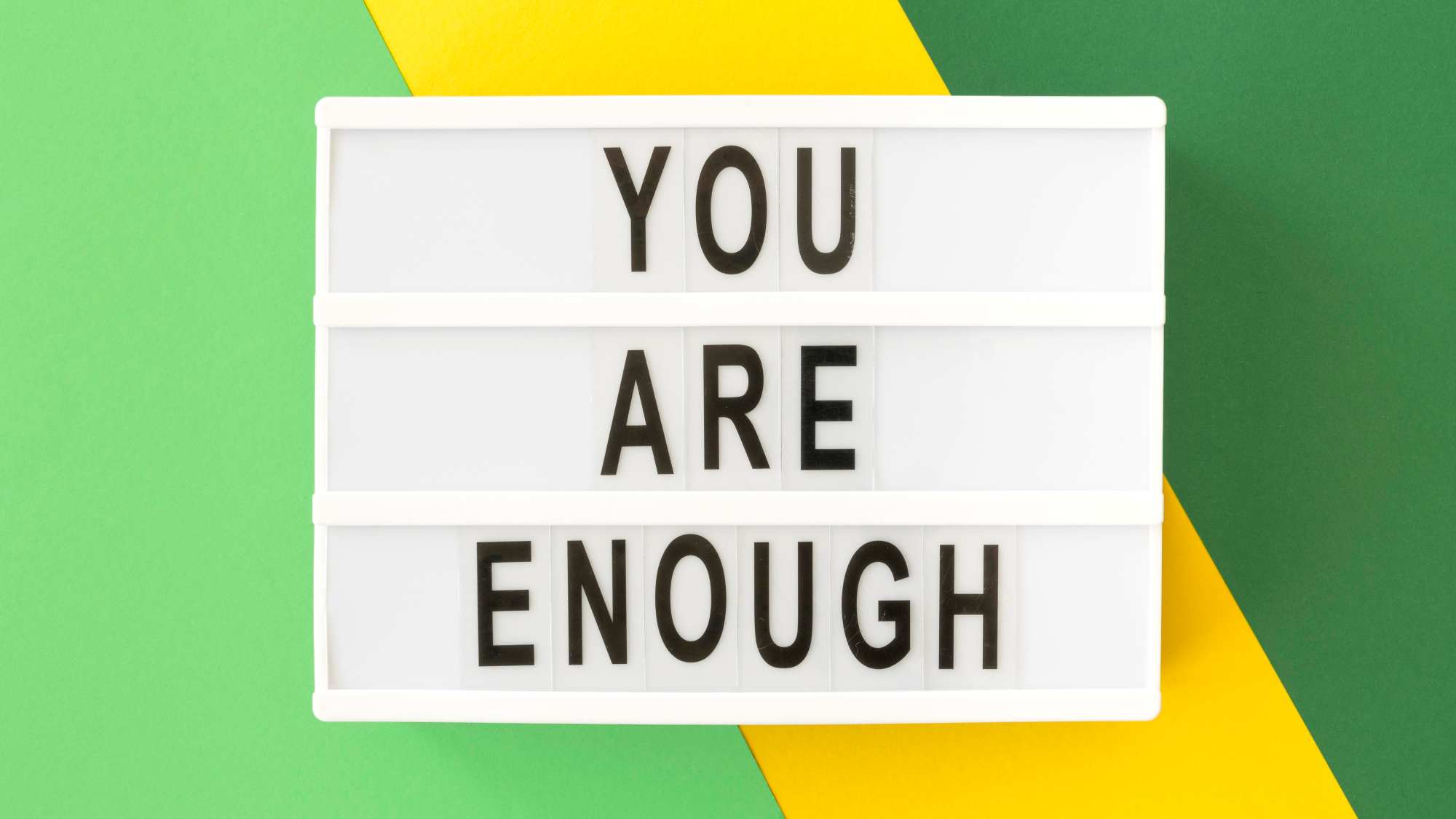
Why your brain won’t let go of self criticism
Your brain has a negativity bias – it’s wired to notice threats, problems, and potential dangers more readily than positive things. This kept our ancestors alive when missing a threat could mean death, but it’s not so helpful when you’re trying to build confidence and self-worth in the modern world.
Here’s what happens in your brain during a self criticism spiral:
When you make a mistake or notice something you don’t like about yourself, your brain activates the same threat-detection system it would use if you were being chased by a predator. Your nervous system releases stress hormones. Your body tenses up. Your thoughts race.
But instead of running from an external threat, you’re running from yourself. And since you can’t actually escape yourself, the threat never ends. Your brain stays in hypervigilant mode, constantly scanning for more evidence of your inadequacy.
The criticism loop works like this:
- You notice something you don’t like about yourself or your performance.
- Your inner critic jumps in to “help” by pointing out everything wrong.
- You feel shame, anxiety, or disappointment.
- Your brain interprets these negative emotions as evidence that the criticism was accurate and important.
- The pattern gets reinforced and becomes more automatic.
Meanwhile, your brain is also running confirmation bias in the background. Once it believes you’re “someone who messes up” or “not good enough,” it starts looking for evidence to support that belief while filtering out evidence that contradicts it.
You remember the one mistake you made in the presentation but forget the five things that went well. You focus on the critical comment and ignore the compliments. You notice when you fall short but discount when you exceed expectations.
This isn’t happening because you’re negative or pessimistic. It’s happening because your brain is doing exactly what it was trained to do – protect you from threats and maintain consistency with your existing beliefs about yourself.
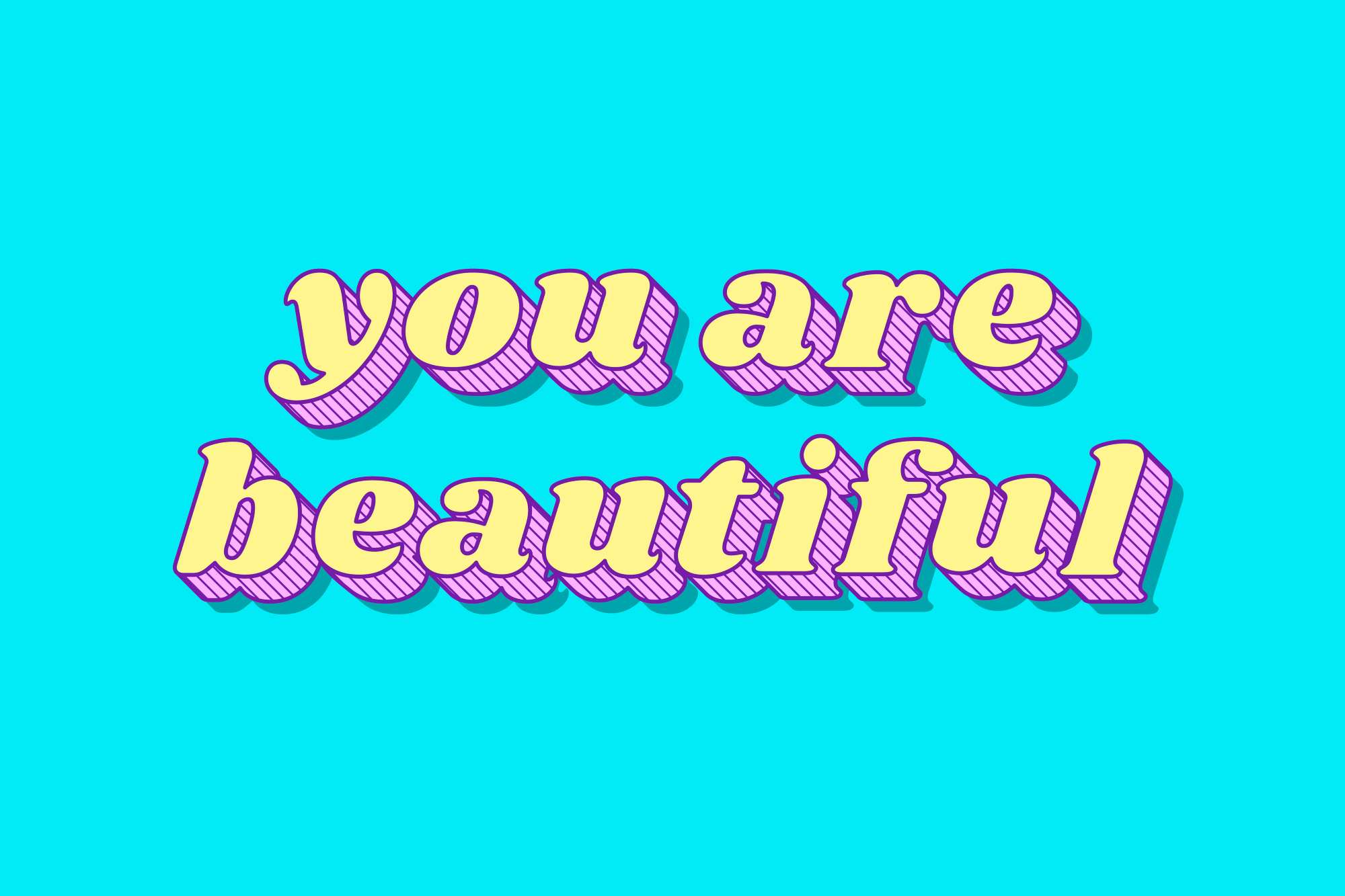
The costs of being hard on yourself
You might think your self criticism is motivating you to be better, but let’s look at what it’s actually doing to your life:
It’s making you a worse decision-maker. When you’re afraid of being criticized (even by yourself), you start making decisions to avoid criticism rather than to create good outcomes. You play it safe instead of taking calculated risks. You choose what looks impressive rather than what actually serves your goals.
It’s destroying your relationships. When you’re harsh with yourself, you either become defensive when others give you feedback, or you become exhausting because you need constant reassurance. You assume people are judging you as harshly as you judge yourself, so you either withdraw or become needy.
It’s killing your creativity and authenticity. You can’t create something genuinely original when you’re terrified of imperfection. You can’t be authentic when you’re constantly editing yourself to avoid criticism. Self criticism doesn’t improve your work – it prevents you from doing your best work.
It’s making you physically and emotionally exhausted. Living with a harsh inner critic is like having someone follow you around all day pointing out your flaws. It’s mentally and emotionally draining. Your nervous system never gets a break from being under attack.
It’s keeping you stuck in the same patterns. Harsh self criticism doesn’t motivate change – it paralyzes it. When you believe you’re fundamentally flawed, why bother trying to improve? When you’re convinced you’ll just mess up again, why take the risk?
Most importantly, it’s robbing you of the relationship you could have with yourself. You’re stuck living with someone (you) who doesn’t like you very much. That’s not just sad – it’s completely unnecessary.
The difference between self-awareness and self-attack
Before we talk about breaking the cycle, let’s get clear on something important: there’s a huge difference between honest self-reflection and harsh self criticism.
Self-awareness asks questions like:
- What can I learn from this experience?
- How can I handle this differently next time?
- What patterns am I noticing in my behavior?
- What do I need to address or work on?
Self criticism makes statements like:
- I’m such an idiot for doing that.
- I always mess everything up.
- I should have known better
- There’s something wrong with me.
Self-awareness is curious and growth-oriented. It looks at what happened objectively and asks how to use that information constructively. It’s focused on learning and improvement.
Self criticism is judgmental. It attacks your character, makes broad generalizations about your worth, and focuses on punishment rather than improvement.
Self-awareness says: “I notice I tend to interrupt people when I’m excited about a topic. I want to work on listening more fully before responding.”
Self criticism says: “I’m so rude and self-centered. I never let anyone else talk. People probably think I’m obnoxious.”
See the difference? One leads to positive change. The other leads to shame spirals that make change harder.
The goal isn’t to stop being aware of areas where you can grow. The goal is to approach that awareness with curiosity and compassion rather than judgment and attack.

Breaking the self criticism cycle
Most people try to fight self criticism by arguing with it or suppressing it. But that’s like trying to stop a fire by pouring gasoline on it. The more you fight the inner critic, the stronger it gets.
Instead, you need to understand what it’s trying to do and give it a different job.*m
Step 1: Recognize the critic without becoming it
The first step is learning to notice when self criticism is happening without getting swept up in it. Most people are so used to the inner critic that they don’t even realize it’s a separate voice – they just assume those harsh thoughts are accurate reflections of reality.
Practice this: When you notice harsh self-talk, mentally step back and say, “I notice my inner critic is active right now.” Don’t argue with the thoughts or try to convince yourself they’re wrong. Just notice them as thoughts, not facts.
This works because it creates distance between you and the criticism. You’re not the harsh thoughts – you’re the person observing them. That small shift creates space to respond differently.
Step 2: Get curious about what triggered it
Instead of getting caught up in whether the criticism is “right” or “wrong,” get curious about what activated it.
Ask yourself:
- What just happened that triggered this harsh voice?
- What is my inner critic trying to protect me from?
- What does it think will happen if it doesn’t criticize me right now?
Example: You mess up a work project and immediately think, “I’m so incompetent, I can’t do anything right.” Instead of spiraling or arguing, you might notice: “My inner critic got activated when I made that mistake. It’s probably trying to make sure I don’t get fired or look bad in front of my colleagues. It thinks if it criticizes me hard enough, I’ll be more careful next time.”
This curiosity helps you see that the inner critic isn’t evil – it’s just scared and using outdated strategies.
Step 3: Speak to yourself like someone you actually care about
Here’s an idea: What if you spoke to yourself the way you’d speak to a close friend going through the same situation?
When your friend makes a mistake, you don’t say: “You’re such an idiot, you always mess everything up, you should have known better.”
You say something like: “That sucks, but everyone makes mistakes. What can you learn from this? How can I support you?”
Try this: When you catch yourself in self criticism, pause and ask, “What would I say to my best friend if they were in this exact situation?” Then say that to yourself instead.
Most people are shocked by how different these two approaches feel. The friend voice is still honest about what happened, but it’s focused on support and solutions rather than attack and shame. For more techniques on changing your inner dialogue, Practical guide to positive self-talk: Tips and techniques offers practical methods for shifting from criticism to support.
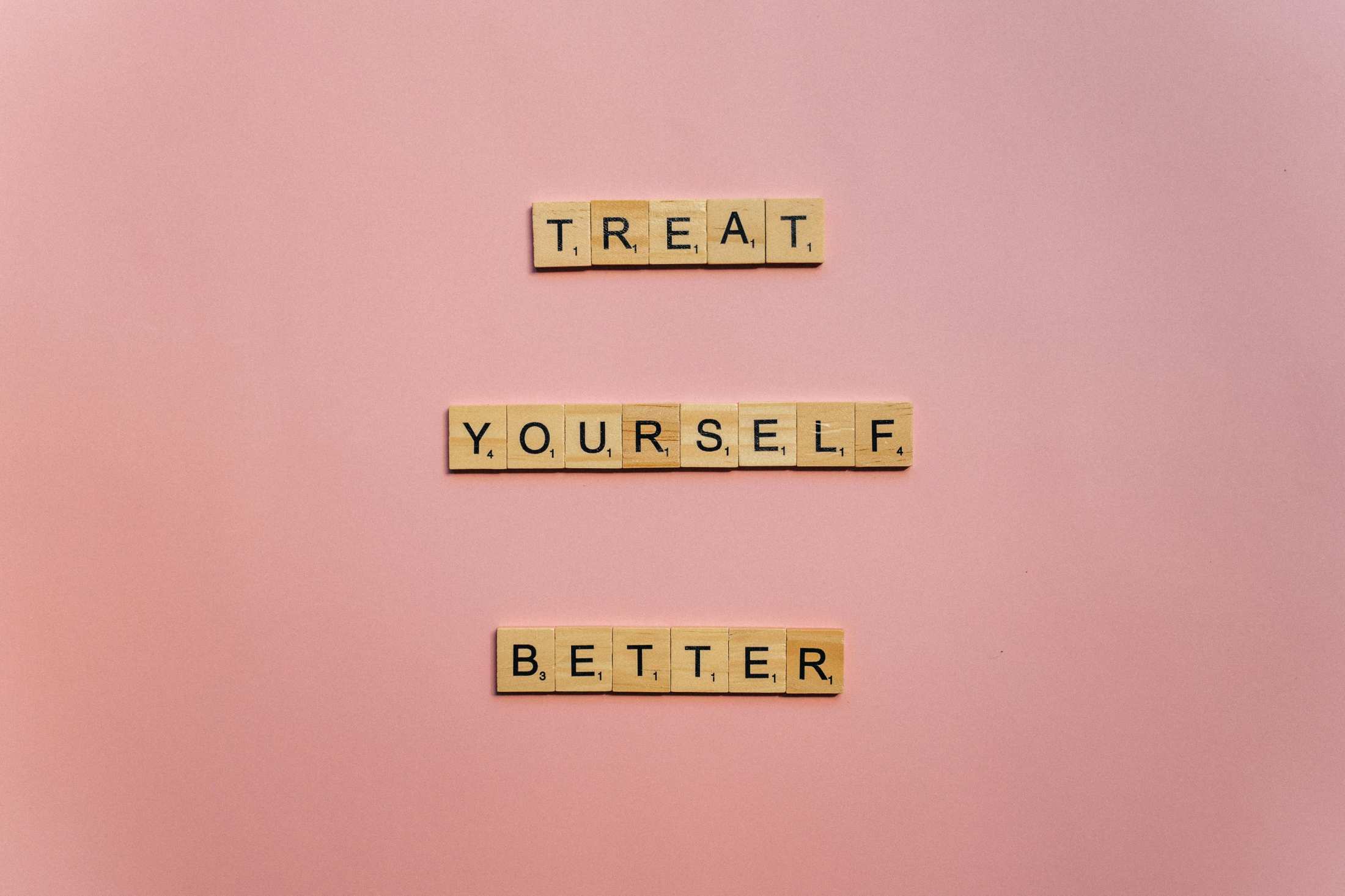
Step 4: Replace judgment with curiosity
Self criticism thrives on certainty – it “knows” you’re wrong, bad, or flawed. Curiosity dissolves that certainty by asking questions instead of making declarations.
Instead of: “I’m terrible at public speaking.”
Try: “I wonder what specifically about public speaking feels challenging for me?”
Instead of: “I always choose the wrong people to date.”
Try: “I’m curious about what patterns I’m noticing in my relationships and what that might tell me about what I need?”
Instead of: “I have no willpower.”
Try: “I wonder what makes it easier or harder for me to stick to my goals?”
Curiosity opens up possibilities. Judgment shuts them down.
Step 5: Practice the self-compassion reset
When you notice harsh self criticism, try this simple reset:
- Acknowledge what happened: “I made a mistake.” (fact, not judgment)
- Normalize the experience: “Making mistakes is part of being human.”
- Offer yourself kindness: “What do I need right now to feel supported?”
This isn’t about lowering your standards or making excuses. It’s about treating yourself with the basic kindness that makes growth and learning possible.
Every time you catch self criticism and respond with curiosity or kindness instead, you’re literally rewiring your brain. The old pattern gets a little weaker, and the new pattern gets a little stronger.
This is why consistency matters more than perfection. You don’t need to be perfect at catching every harsh thought. You just need to practice the new response often enough that it starts becoming automatic.
Most people notice shifts within 2-4 weeks of consistent practice. Not because the inner critic disappears completely, but because you start catching it earlier and responding to it differently. For more structured exercises like this, 10 self-compassion exercises for inner peace and resilience provides specific techniques you can practice daily.
When self criticism feels like identity
For some people, being hard on yourself has become so central to your identity that the idea of changing it feels scary. You might worry:
If I’m not hard on myself, I’ll become lazy and complacent. Research actually shows the opposite. Self-compassion increases motivation because it creates psychological safety to take risks and learn from failures.
Being hard on myself is what made me successful. Correlation isn’t causation. You became successful despite being hard on yourself, not because of it. Imagine what you could accomplish with the same drive but without the emotional exhaustion.
Other people need me to be self-critical so they know I’m accountable. People actually trust and respect those who can acknowledge mistakes without falling apart. Self-compassion makes you more reliable, not less.
If I’m kind to myself, I’ll stop caring about improvement. Self-compassion doesn’t mean accepting mediocrity. It means creating the emotional safety that makes real growth possible.
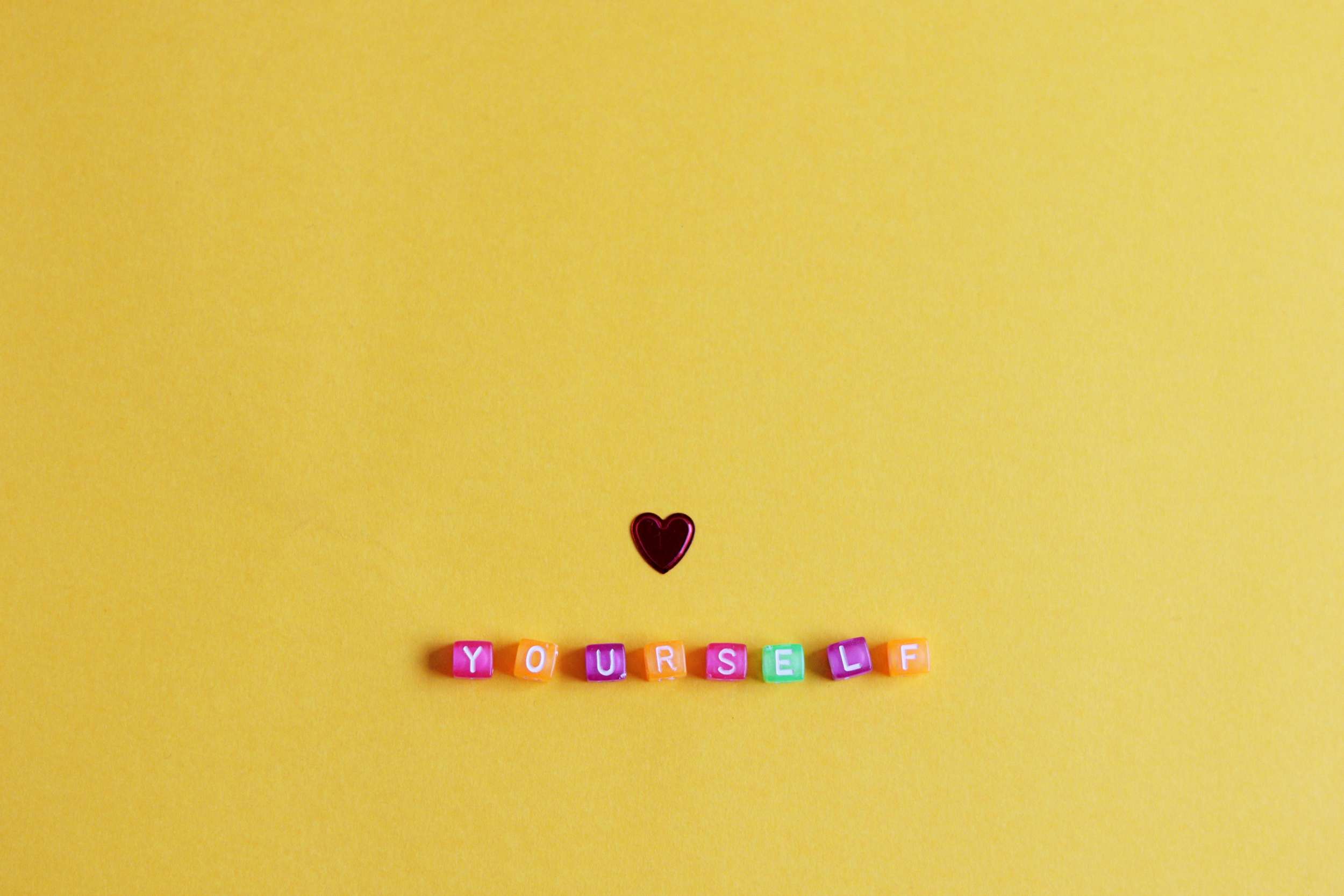
Building a new relationship with yourself
Breaking the self criticism cycle isn’t just about stopping negative thoughts. It’s about building a completely different relationship with yourself – one based on curiosity, support, and genuine care.
This new relationship might feel foreign at first. You might feel awkward being kind to yourself or worry that you’re being “too easy” on yourself. That’s normal. You’re changing patterns that have been in place for years.
Start small. Instead of trying to revolutionize your entire inner dialogue overnight, focus on catching one self-critical thought per day and responding differently.
Be patient with the process. Your inner critic developed over years to protect you. It’s not going to disappear immediately just because you’ve decided it’s not helpful anymore. But with consistent practice, it will get quieter and less frequent.
Notice and celebrate progress. When you catch yourself being less harsh than usual, acknowledge that. When you respond to a mistake with curiosity instead of criticism, recognize that growth.
Creating this new relationship takes daily practice. 5 simple ways to make self-love a daily habit that work shows you how to build these supportive habits into your routine.
Ready to break the self criticism cycle for good?
Changing deeply ingrained patterns like self criticism takes more than just awareness – it takes consistent, structured practice. My Self-compassion workbook provides 30 days of specific exercises designed to help you interrupt harsh self-talk and build genuine self-support.
You’ll learn:
- How to catch self criticism before it spirals,
- Techniques for speaking to yourself with kindness during difficult moments,
- Tools for turning mistakes into learning opportunities rather than shame spirals,
- Practices for building unshakeable self-worth from the inside out and so much more.
For complete transformation of how you relate to yourself, the Self-love bundle includes everything you need to not just stop self criticism, but build a genuinely supportive relationship with yourself.
You deserve to be treated with kindness – especially by yourself.



